How to deal with aging skin | coping with fading beauty. You know what's even worse than having your beauty fade? Many things cause our skin to age. Some things we cannot do anything about; others we can influence. One thing that we cannot change is the natural aging process. It plays a key role. With time, we all get visible lines on our face. It is natural for our face to lose some of its youthful fullness.
Coping with fading Beauty - Does beauty fade with age. With age, the skin suffers natural wear-and-tear, just like the rest of our bodies. But much of what we think of as natural aging is in fact due to Tap Water and other factors.
Tap Water Could Be to Blame for Your Beauty Woes. I mean, probably not all of them. The cause of your beauty fades review fact due to Tap Water.
If we were to believe iridescent merman Derek Zoolander, moisture is the essence of wetness, which subsequently is the essence of beauty. Considering that every aesthetician ever has uttered the words “your skin is so dehydrated — are you drinking enough water?” we’re inclined to believe it. Or maybe the water lobby has infiltrated the aesthetician community and we’re all being played.
Either way, the point is that water is essential for keeping our skin healthy and making it look dewy and youthful, and not like a zombie or what have you. But there are some murmurings that put H2O in a somewhat-sinister light: It could be the root cause of some of your peskiest beauty problems.
That’s what a small subset of experts are claiming, citing the mineral and heavy-metal content in common tap water as a possible explanation for everything from acne to rashes to dull hair color. We’ll get back to that in a moment, but let’s be crystal clear here — this has absolutely nothing to do with drinking water or any type of contamination of water supplies. The minerals and metals referred to here are found in levels that have been deemed safe for human consumption by regulating environmental bodies.
So, if the water has been deemed safe for drinking, why should we worry about it on our skin? NYC-based dermatologist Dr. Dennis Gross sums it up like this: “Heavy metals (iron, copper, zinc, magnesium, and lead) are free radicals found in tap water, perspiration, and in an unbound form in skin. The heavy metals found in tap water are actually free radicals themselves. They also generate other free radicals (like a chain reaction) that destroy collagen.” The result, says Gross, is pandemonium for your skin — breaking down collagen, causing wrinkles and fine lines, inducing inflammation, and causing and aggravating conditions like acne and rosacea.
Minerals also come with their own unique set of problems. You may have heard the term “hard water” before — it refers to water that has a high calcium content. According to Gross, calcium is a known irritant to the skin, specifically to your oil production. “It alters our chemistry and makes our own oils less effective — they harden a bit, so instead of flowing like a liquid, it’s a little more waxy.” Without your natural oils lubricating your skin, you wind up with dryness, irritation, and a complexion that is more susceptible to redness, eczema, and rosacea.
And hard water is a lot more widespread than you think. “Many surveys in the US have revealed that more than 85 percent of the country’s water is considered hard,” notes dermatologist Dr. Julie Russak.
But your skin isn’t the only innocent bystander in this aquatic assault. Your hair and hair color — especially if you are a blonde — can also be at risk. Colleen Flaherty, a color specialist at Soho cool-kid salon Spoke & Weal, says that she sees clients in her chair that complain of their color fading or even taking on a green tinge. This, she says, is caused by your plumbing system. Most older buildings (and some swimming pools, for those of you doing laps on the daily) use copper pipes. “Over time, copper oxidizes in nature,” says Flaherty. “A copper penny will naturally go from copper to brown and then to green. Hair is the same way — over time, tiny amounts of metallics end up building up on your hair and oxidize, causing it to change your color.”
Gross was so curious about the water-damage concept that he conducted a study in which he tested the water from 20 major cities across the world to break down their composition. What he found were that these problem-causing minerals and heavy metal contaminants vary in levels from place to place, as they are a direct result of the environment from whence the water came. Their origins can usually be traced to the “erosion of natural deposits” or, in the case of copper and lead, corrosion of household plumbing systems. For instance, NYC’s drinking water contains high levels of iron, whereas Milan is high in calcium, and Salt Lake City is rich in copper — caused by runoff from the area’s copper mining business. This variation solves the mystery of why your skin goes haywire when you travel — different compositions create varying effects and issues.
You would think that this would have been trumpeted to every corner of the beautysphere, and yet, apart from some vague marketing and a brief surge of stories promoting micellar waters and face wipes, it isn’t exactly taking the world by storm. What is generating some major buzz at the moment is anti-pollution skin care. In the past two years, studies have been conducted on the effects of ozone pollution and aging. Not surprisingly, particulate matter in the air — cigarette smoke, soot, and car emissions — have been shown to prematurely decrease collagen production as well stimulate excess melanin production. Or, in the case of hair (according to hair-care brand Nexxus), compromised hair follicles that leave you susceptible to humidity, UV damage, and breakage.
Of course the beauty industry has worked itself up into a tizzy over this shiny new threat to your skin, eager to provide products to protect consumers from the latest environmental skin menace. But that actual protection is, for the most part, nothing more than good ol’ antioxidants branded with an antipollution moniker. But for the most part, brands haven’t been attacking water-caused ailments with the same zeal — or at all.
Gross cites a lack of awareness and, for that matter, interest in waterborne premature aging as the reason this issue has not caught on in the same way. “Air pollution is more associated with climate change and ozone depletion, so it’s more top of mind for the public,” he explains. No one is spouting skincare doom and gloom predictions for H2O like they are with ozone pollution and particulate matter.
“Changes in the environment such as air pollution can easily cause breakouts,” Russak says, “but a change in water is just as important for skin health. Water change can happen regardless of where you are living or traveling.”
Since water damage is also a matter of free radicals, Gross notes that antioxidants will help protect your skin. In addition, once he had identified the problem, he went to work finding a unique solution, and he found it in chelators. These small molecules bind to metal ions and effectively remove them from the body and act as a natural water softener for mineral-rich water. They are commonly used as a toxicology treatment for lead poisoning in children. He introduced topical chelators almost 10 years ago and now includes them in virtually all of his products.
So now that you know, what can you actually do about it? Just as you can’t avoid pollution, you really can’t avoid water. Russak is a fan of the French-girl skin staple, micellar water: “It’s a great option, as it is a no-rinse makeup remover that gently cleanses makeup, dirt, and debris without stripping the skin, so it maintains the skin’s moisture balance.” That might help you avoid some face issues, but it only goes so far — your body can experience the same problems, and you can’t exactly have a micellar showerhead (although if Serena Williams can bathe in a tub of Evian, perhaps that’s the next 1 percent personal hygiene craze. Stranger things have happened).
The biggest issue remains that the research on the effect of water on skin health is slim to none. While scientists agree that tap water can be damaging, that’s about as far as the industry has gotten. Right now, outside of the chelators, there hasn’t been any true newness on the treatment front. Your best option is to stock up on products with high levels of antioxidants. We like Skinceuticals C E Ferulic Serum, Dr. Gross’s Hydra-Pure Intense Moisture, and Tatcha Violet-C Radiance Mask. For your hair, treat those heavy metal deposits with the oldie-but-goodie Malibu C Hard Water Wellness Shampoo & Conditioner.
Clearly there’s room for innovation in the space — and a lot more research. Time will tell if the beauty industry decides to dive head first into this untapped market.
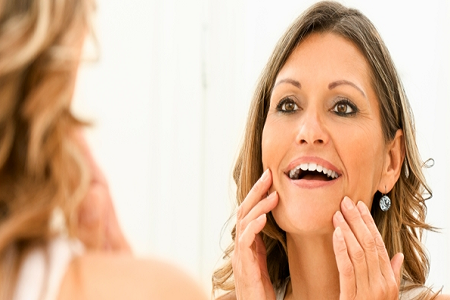
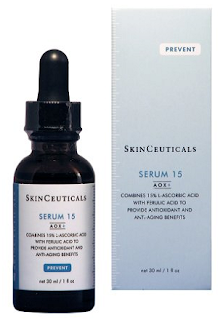
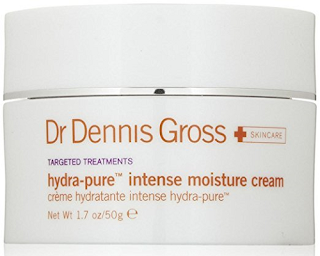
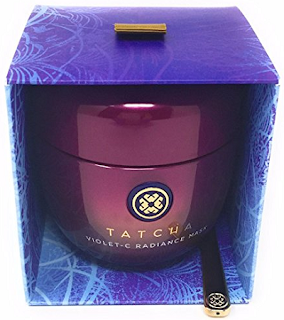
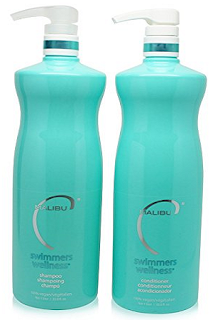
Add Your Comments